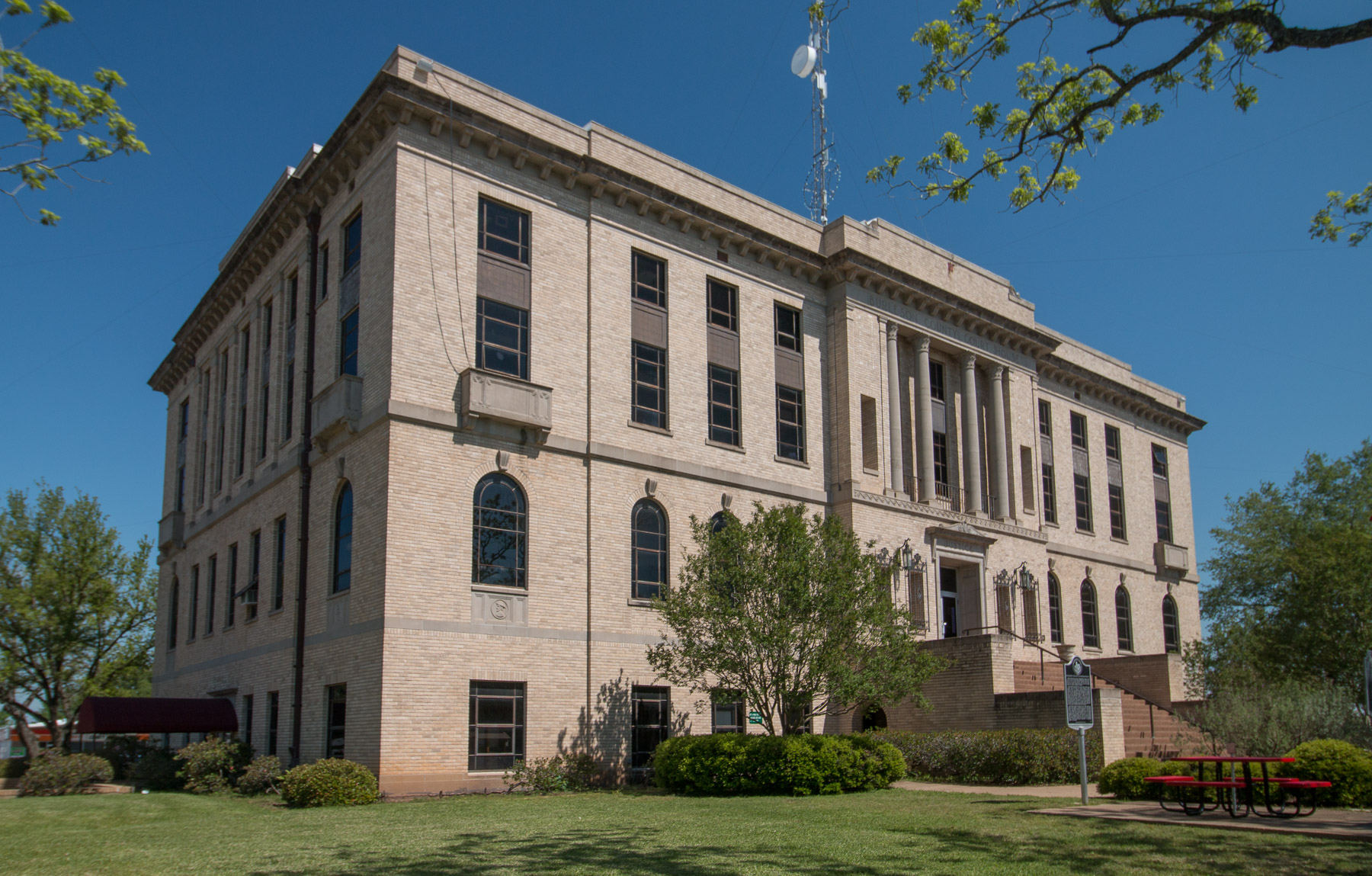Texas Writs of Garnishment to Collect Judgment Liens from Burleson County, Texas
Busby & Associates is a leading law firm with skills in defending, collecting, and enforcing judgments. While we are skilled in garnishing bank accounts and financial institutions, we also offer legal services for consumer bankruptcy, family law, and divorce matters. Our team can assist both obligors and obligees with child support lien collections and defense, and domesticating foreign child support liens in Burleson County, Texas. If you’re a judgment creditor facing challenges in collecting from a debtor in Burleson County, Texas, we can help you recover your judgment.
Texas Judgment liens in Burleson County
To establish a lien on all nonexempt real property belonging to the judgment debtor in Burleson County, the abstract of judgment must be properly recorded and indexed. The abstract must be filed in each county where the debtor has property to fix the lien. The lien remains valid for ten years from the date of recordation and indexing, provided that the judgment does not become dormant. The judgment on which the lien is based must be final, not interlocutory. However, an abstract of judgment may still be filed even if the judgment is being appealed or a supersedeas bond has been filed. If a creditor establishes a lien before the appeal, the lien remains valid in the event of affirmation. These rules only apply to Texas state trial court judgments, and for the enforcement of judgments from other states and foreign countries, the judgment must first be domesticated in Texas before an abstract can be filed.
Texas Abstract of Judgment
Texas has specific rules about who can prepare abstracts of judgment for different types of courts. The judge, justice of the peace, clerk of the court, judgment creditor, agent, attorney, or assignee can prepare the abstract for judgments rendered in most courts, except small claims and justice courts. For these types of courts, the judgment creditor is not allowed to prepare their own abstract. Also, keep in mind that abstracts of federal court judgments require certification from the clerk of the court. If you need to abstract your judgment lien in Burleson County, Texas, you can do so at the County Clerk’s office located at 100 W Buck St, Caldwell, Texas 77836.
Contents
In Texas, when filing a judgment, an abstract must be provided that contains certain information. This information includes the names of the plaintiff and defendant, the defendant’s birthdate (if known), the defendant’s driver’s license and social security numbers (if known), the suit number, the defendant’s address or citation information, the date of the judgment, the amount of the judgment and balance due, any child support arrearage, and the interest rate. The abstract must also include the mailing address for each plaintiff or creditor, and it must be verified by the creditor’s attorney. Failure to include the mailing address will result in a penalty filing fee. Declarations that are not verified are not accepted.
Recordation of Judgment Liens Abstract
Burleson County is the designated location for recording the abstract of judgment if the debtor has real property in the county. The clerk of Burleson County is responsible for receiving the abstract and recording it in the county’s real property records. The clerk must also note the date and time of recording on the abstract and enter it into the alphabetical index of the real property records. This index includes the names of both the plaintiff and defendant and the page number where the abstract is recorded.
Abstracts of Domesticated Judgment Liens.
The Uniform Enforcement of Foreign Judgments Act and the Uniform Foreign-Country Money Judgments Recognition Act provide that judgments filed pursuant to these Acts can be enforced in the same manner as judgments in the court of origin. The foreign judgment holder seeking to domesticate the judgment in Texas must fulfill the lien requirements.
Property To Which Lien Attaches Non-Exempt Real Property
All nonexempt real property registered in Burleson County, the county of recordation, is affected by the judgment lien on the defendant.
Keeping the Judgment and Judgment Lien Alive
1. Non-governmental Judgments
The lien resulting from a judgment remains in effect for 10 years from the date of recording and indexing, unless the judgment becomes dormant, in which case the lien is terminated. To maintain an active judgment, two requirements must be met: (1) the judgment must be kept alive and (2) a new abstract of judgment must be obtained and recorded. A judgment becomes dormant if no writ of execution is issued within 10 years of its creation, but it can be revived through scire facias or by pursuing a debt action within two years of dormancy.
2. State or State Agency Judgments.
A properly filed abstract of judgment creates a lien for 20 years from the date of filing, which can be renewed for another 20-year term. Moreover, judgments made by the state or a state agency do not become dormant.
3. Political Subdivisions.
Judgments of political subdivisions can go dormant under dormancy statutes, but the same section, Civ. Prac. & Rem. Code § 31.006, the revival statute, states that the political subdivision is not barred by the statute of limitations. Therefore, the judgments of political subdivisions can be revived at any time, even beyond the two-year dormancy period.
4. Child Support Judgments.
The exclusion of child support judgments from the dormancy statute is a provision in Subsection (c) of § 34.001 of the Civ. Prac. & Rem. Code that applies to all child support judgments, regardless of when they were entered.
Property Subject to and Exempt from Execution.
1. Property Subject to Execution.
The property of the debtor under judgment is eligible for execution by levy, provided it is not exempted by the constitution, statute, or any other rule of law. Typically, the following types of property are not exempt: a. Cash on hand or in checking or savings accounts; b. Pleasure boats and their motors and trailers; c. Collections such as stamps or coins; d. Investments such as stocks, bonds, or notes; e. f. Airplanes. There is no exempt property for corporations.
2. Property Exempt from Execution.
The following categories of property are exempt from execution for both families and single adults: a) the homestead; b) personal property of various categories as specified by law, worth up to a total of $100,000.00 for a family or $50,000.00 for a single adult without family ties; c) current wages for personal service (excluding child support payments) and unpaid commissions for personal service, up to 25% of the $50,000/$100,000 aggregate limit; d) health aids prescribed by a professional; e) worker’s compensation payments; f) cemetery lots held for the purpose of interring human remains; g) property sold, mortgaged, or conveyed in trust by the judgment debtor, where the purchaser, mortgagee, or trustee can identify other property of the debtor that will satisfy the judgment; h) assets held in a spendthrift trust for the benefit of the debtor by a trustee; i) certain insurance benefits; j) specific savings plans, such as retirement benefits and health savings plans; k) college savings plans; l) consigned artwork meeting certain requirements.
WRITS OF GARNISHMENT
A post-judgment garnishment procedure can be used by a judgment creditor to inquire into any debts owed to a judgment debtor by a third party. Upon discovery of any debts, the creditor (garnishor) can obtain a garnishment judgment, which requires the third party (garnishee) to make payments to the garnishor instead of the debtor.
Requirements to Issue
Garnishment following a judgment is only feasible if certain requirements are fulfilled. Firstly, the creditor must possess a valid and subsisting judgment against the debtor, with the judgment being final and subsisting from the date of rendition. Secondly, the debtor must not have filed an approved supersedeas bond to halt execution on the judgment. Finally, the creditor must swear that, to their knowledge, the debtor does not have enough property in Texas to fulfill the judgment through execution.
Procedure for Securing Issuance Jurisdiction and parties
It’s essential to understand that a post-judgment garnishment action is a distinct lawsuit from the main case it intends to enforce. Since it’s a supplement to the primary lawsuit, the third-party garnishee should be identified as the accused. Additionally, it should be filed in the same court that issued the judgment for collection, but with a different cause number.
Service of the writ of garnishment/notice to judgment debtor.
To execute the garnishment, the garnishee must be served with the writ of garnishment. While the judgment defendant is not a compulsory party to the process, he or she should be given a copy of the writ, the application, accompanying affidavits, and court orders after the garnishee has been served. It is mandatory to have the content of the writ, in 12-point bold typeface, conveyed clearly and effectively to the defendant. If the debtor is not informed of the property notice, any judgment other than one that dissolves the writ is deemed invalid.
Banks as Garnishees for Writs of Garnishment
The registered agent’s address mentioned in the financial institution’s registration statement is the designated location for serving garnishment writs on banks, in accordance with Section 201.102 or 201.103 of the Finance Code. Out-of-state financial institutions must comply with state laws by designating an agent for process while filing a registration application with the Secretary of State under Section 201.102. Texas financial institutions can appoint an agent for process by submitting a statement to the Secretary of State under Section 201.103.
Officer’s Return.
To comply with the citation regulations, the officer executing a writ of garnishment must make a return. Under Tex. R. Civ. P. 663, it is important for the judgment creditor to inspect the return before seeking a garnishment judgment, especially if the judgment is defaulted. The same rules that apply to citations govern returns in garnishment proceedings. Failing to specify the method and location of service on a corporate garnishee, or failing to provide a location, can result in returns being rejected by the courts.
Forms for the form and Practical Procedure
If you discover a bank account or other debt that can be garnished and the amount of funds involved makes it worth pursuing, you can file an Application for Garnishment. The application should be accompanied by an affidavit signed by the judgment creditor’s attorney, which should include crucial information, such as the original suit and judgment details, the garnishee’s name and address, and any available account names and numbers.
In the event of a judgment from Texas, Busby and Associates could potentially provide assistance in its collection on a contingency basis. For judgments from other states with the judgment debtor in Texas, they will evaluate it on a case-by-case basis, and there may be a need for a retainer. If the judgment debtor or judgment is in Burleson County, Busby and Associates can guide you in garnishing a bank account or financial institution.














